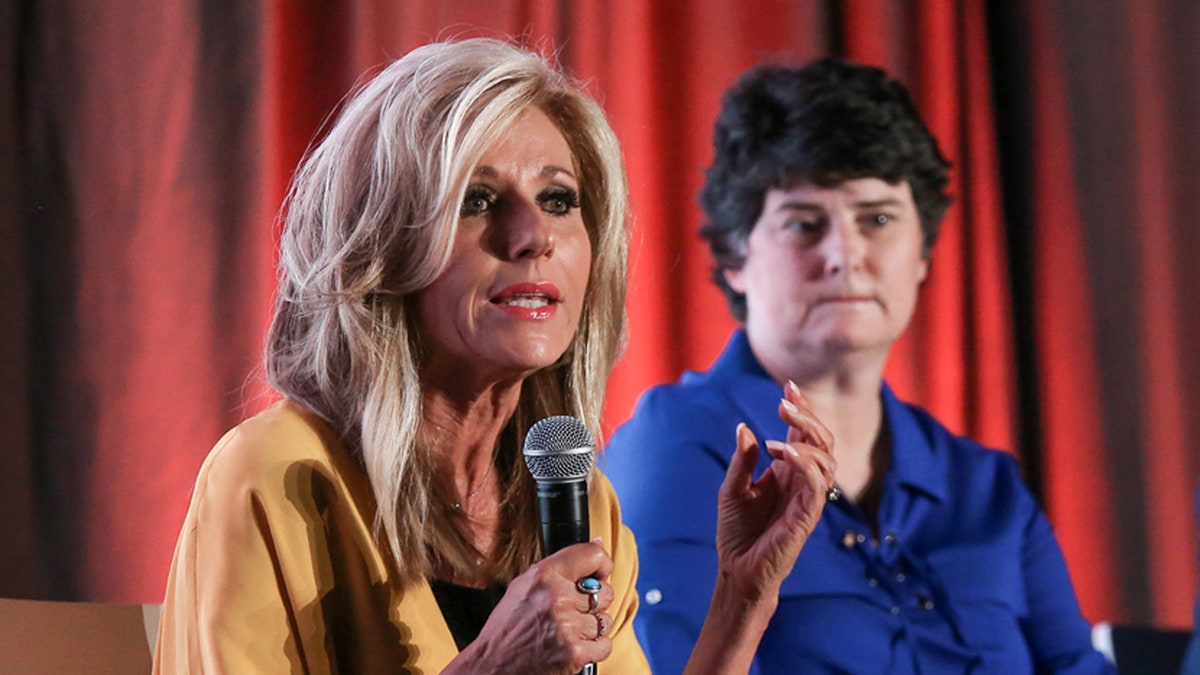
Bible teacher and sexual abuse survivor Beth Moore (left) created a stir when she said she would be preaching a Mother's Day service at a particular church. (Van Payne/Baptist Press)
It’s interesting to see the impact the #MeToo movement has made on our culture.
The past month has revealed yet another major issue regarding women -- the oppression of women in the faith communities is now center stage.
This topic went viral when Bible teacher Beth Moore, a popular Southern Baptist speaker, mentioned in a tweet that she would be preaching a Mother's Day service at a particular church.
The tweet created a frenzy across social media networks. Several male ministers from a variety of denominations began to weigh in on whether a woman should teach in a Sunday morning service.
Ten days later, the controversy escalated to debate on the floor of the Southern Baptist Convention.
On the first two days of the convention, a headline surfaced on the issue of whether women should have the right to preach and teach in a Sunday morning church service. The topic of women preachers has been paramount in the Southern Baptist denomination for many years.
If we explore Biblical text for the answers, it is evident in both the Old and New Testaments that God chose and activated both men and women to ministry.
Scripture teaches that God made men and women with equal value: "There is neither Jew nor Greek, there is neither slave nor free, there is no male and female, for you are all one in Christ Jesus" (Galatians 3:28).
The issue of women being silent in the New Testament church has been difficult to interpret. Many people would reference 1 Timothy 2:12 as a reason to support the silence of women in the church.
However, we must interpret this command as it pertains to the culture of the Jewish church, rather than for the church in our times.
The perspective that a woman cannot speak in the church is not consistent with other parts of the scriptures. If the central premise from scripture is that a woman should be silent in the church, then why does the scripture address if a woman should teach or preach at all?
We also see in scripture that the gifts the Lord gives us are not gender-specific. Meaning, both men and women possess and use God's gifts. This truth is further evidence in the Corinthian letter: "But the manifestation of the Spirit is given to EACH ONE for the profit of all."
Why would God give women gifts if they could not speak in the church?
If a woman is called by God, covered by her husband or pastor (as the scripture reads), and confirmed by her leaders, she should be released to preach the message of Christ in any venues.
In our times, it is evident that God uses women in extraordinary ways in both sacred and secular organizations.
It is time the church in America lead the way against all oppression, and especially against the oppression of women.








































